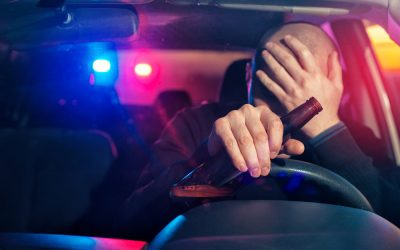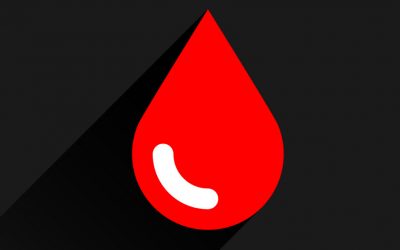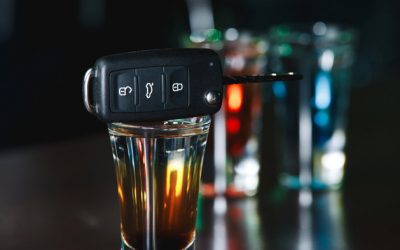If you are pulled over and suspected of DUI, you will likely be asked to take a breath test. The breath test is supposed to measure the amount of alcohol in your system to see if you are legally intoxicated. However, a number of factors can throw off the accuracy of this test, including health conditions and diet.
For example, people who have diabetes or anyone who eats a low-carb diet may sometimes be in a state called ketosis or ketoacidosis, and this can affect their test results. They could register as being intoxicated even if they are sober. Your Los Angeles DUI attorney will need to review your specific circumstances to determine whether being in ketosis is an appropriate defense for your case.
What Are Ketosis and Ketoacidosis?
They are processes your body enters into when turning fat into energy. Ketosis is a process regulated by insulin in the bodies of people eating a low-carb diet. Ketoacidosis is a process diabetics may enter naturally because of a lack of insulin.
For the purposes of this article, we will use “ketosis” to refer to both. Most people rarely enter ketosis, because we get most of our energy from carbohydrates, which break down into glucose (blood sugar) and provide the body with the energy it needs. Some people, however, do not eat enough carbs or have enough insulin, which means the body begins to use fat as its fuel source instead of carbs.
This may apply to people who:
- Have any form of diabetes
- Follow a low-carb diet, such as low carb/high protein, low carb/high fat, keto, or paleo
Not all diabetics, and not all people on these diets, will be in a state of ketosis. However, if you are and get breath tested for DUI, you will likely get a false reading.
Why Does Ketosis Affect a DUI Breath Test?
When your body uses ketosis, the liver produces a type of compound called ketones. Ketones circulate throughout the body through the blood. If you are asked to blow into a breath test device, trace amounts of ketones will be in your breath, just like alcohol vapor would.
Breath test devices are not as advanced as many people assume they are. They use infrared light to check your breath for ethyl alcohol. Unfortunately, when ketones are present in the breath, they can register as if they were alcohol particles, causing the machine to rate you as having a higher blood alcohol content (BAC) than you really do which can cause an unfair DUI arrest.
Note that ketones do not have any intoxicating effect on the body.
How Do I Know if I Was in Ketosis?
Typically, in order to enter ketosis a person must consume less than 50 grams of carbohydrates a day, and many people find that they must consume 20 grams or less. This essentially means eating no grains or starches of any kind, and no sweeteners. This closely matches the kind of diet doctors often recommend to diabetes patients to control their blood sugar, which is why diabetics sometimes get false positives on breath tests.
You will not necessarily know if you are in ketosis or not. However, it’s a possibility worth investigating if:
- You intentionally eat a low-carb diet.
- You restrict your carb intake for health reasons.
- You didn’t happen to eat many carbs on the day of your DUI arrest.
- You felt sober and were surprised by your breath test result.
If any of these apply to you, you should discuss the possibility of a ketosis defense strategy with your DUI lawyer.
If I Was Drinking, Can I Still Use the Ketosis Defense?
Potentially. Even if you had one or two drinks, you may have been under the legal limit of .08% BAC. If there were ketones in your system from carb restriction earlier in the day, the ketones may have pushed your test results over the limit, even though you were safe to drive.
What Evidence Do I Need to Use This DUI Defense?
There are a variety of evidence you can use depending on the circumstances of your case. For example:
- A documented diabetes diagnosis from a medical doctor
- A statement from your doctor about the kind of diet you were recommended to follow
- Restaurant receipts showing what you ate before the DUI arrest
- A food journal or diet log that you maintain
- Statements from friends or family members that you intentionally follow a low-carb diet
What Happens if You Are Convicted of a DUI
Unfortunately, if your medical condition or diet defense is not successful, the consequences of a conviction could be devastating for you and your entire family. If this is not your first time being charged with or convicted of a DUI, it is possible you could be facing significant jail time and fines. You can also expect to have your driver’s license suspended.
If someone was seriously injured or killed, or you are considered a habitual DUI offender, chances are, your misdemeanor DUI charges could be elevated to a felony offense. This means increased jail or prison time, fines, and an extended driver’s license suspension or revocation.
It is also important to consider the collateral consequences. If you are convicted of a DUI, your life could be impacted in more ways than one. Some of the most common penalties defendants face include:
- Job loss
- Reputational damage
- Loss of federal student aid eligibility
- Trouble finding safe housing
- Being passed over for job opportunities
- Child custody issues
- Immigration or citizenship problems
- Probation requirements
Connect with an Experienced Los Angeles DUI Lawyer for Help With Your Defense
You do not have to gather all this evidence on your own. Your DUI attorney can help you identify whether diet is a good defense in your case and will help you assemble the documentation you need to prove it.
Have you been charged with DUI? We can connect you with an experienced Los Angeles DUI lawyer and get you a free consultation. Fill out our convenient contact form or call our office and get your free consultation today.






